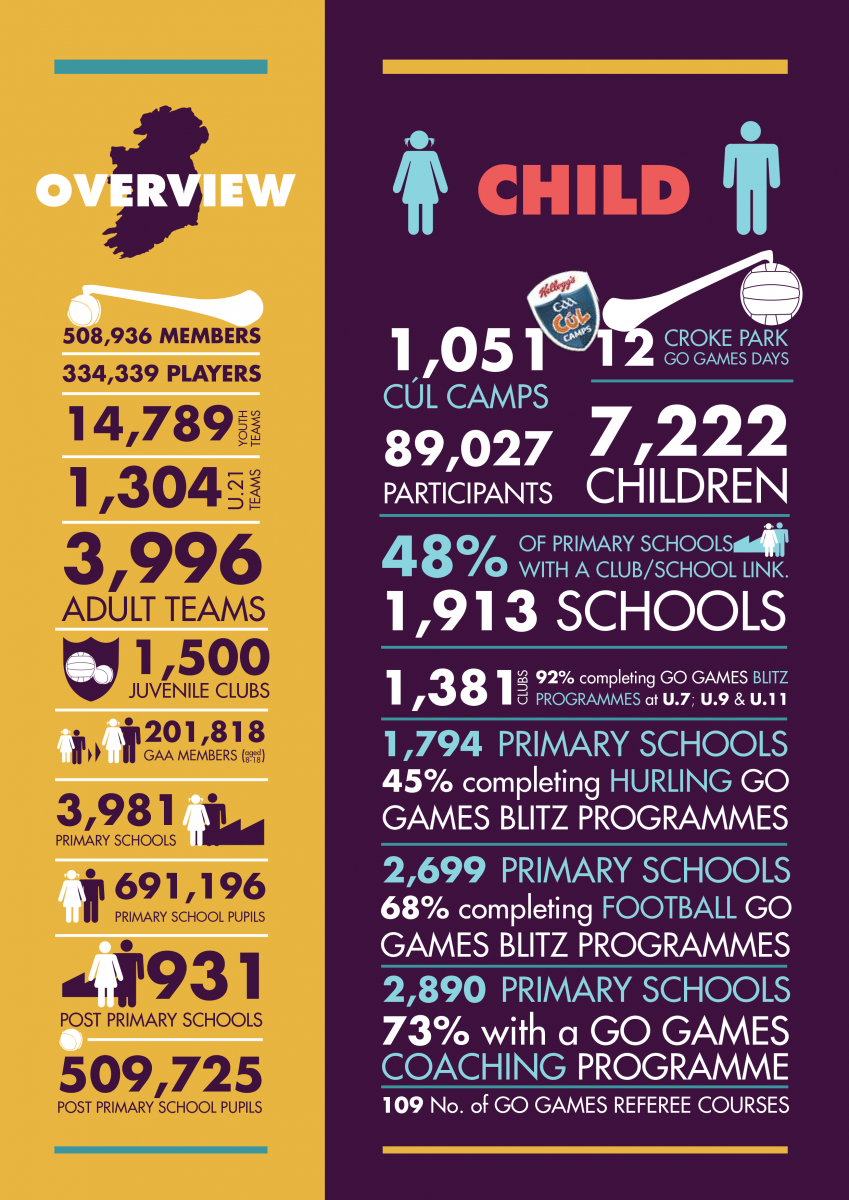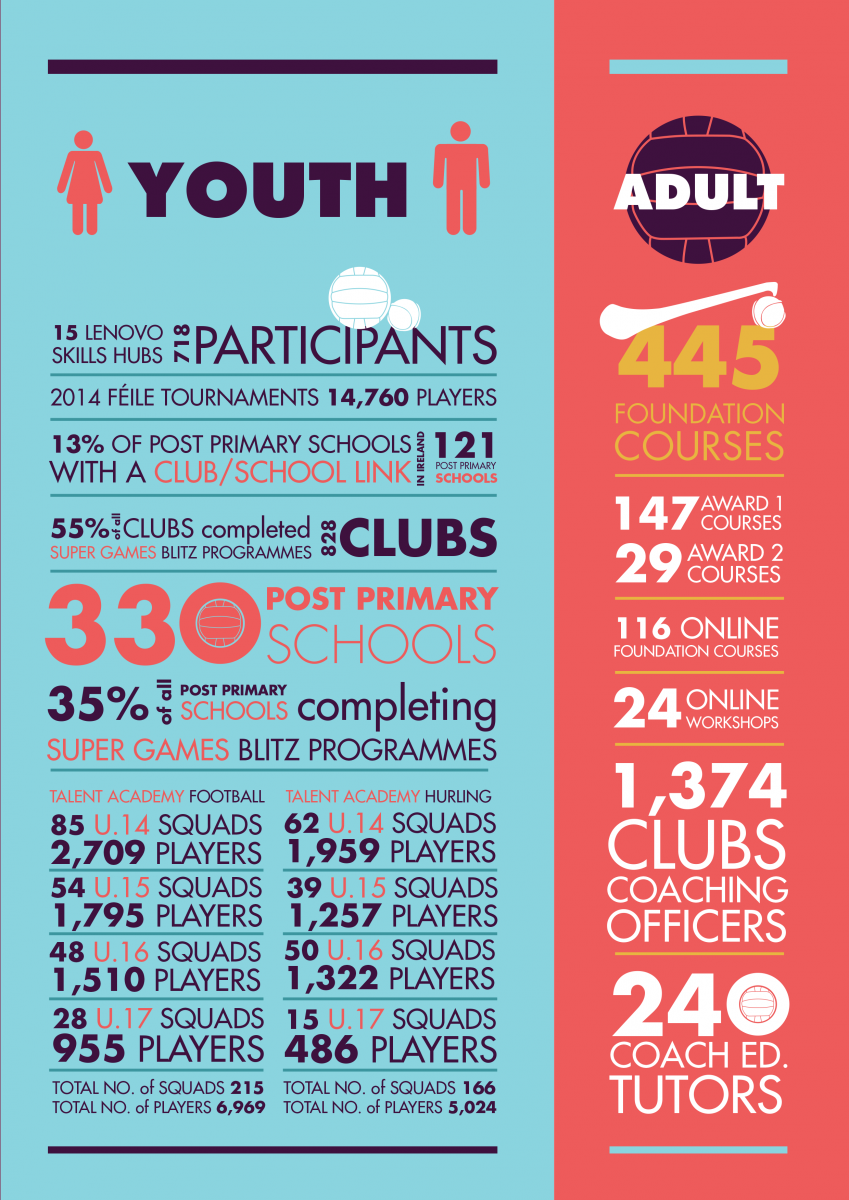Through the Grassroots to National Programme (GNP) GAA Games Development aims to positively impact and inform the lives of the GAA’s members and communities nationwide through development, research and innovation that:
- maximises participation;
- optimises performance;
- embeds a culture of Applied Lifelong Learning (ALL).
The GAA’s Annual Report to the Irish Sports Council for 2014 provides an overview of the activities delivered at Child, Youth and Adult level during 2014. The infographics below provide a statistical summary of the activity levels across the key areas of the GNP. Subsequently each of the key areas are reviewed as part of the report, including:
- Games Opportunities
- School Initiatives
- Camps
- Talent Academies
- Learning & Development

For each of these areas the core rationale underpinning the respective projects and policies are outlined and a number of best practice case studies from all four Provinces are provided. In addition to this, the report provides a synopsis of Hurling Development including the progressive steps that have been taken to support the delivery and promotion of activities and initiatives to strengthen Hurling Development in Tier 2, Tier 3 and Tier 4 Hurling Counties.
Furthermore, a summary of Games Development activities in Dublin is provided with a number of case studies showcasing the on-going GAA activity delivered by Games Development personnel in Ireland’s most populous county.

In conclusion, the report outlines the key priorities for Games Development in 2015. These priorities have been determined in line with the overall strategic vision and values for Games Development, which will ensure in the coming years that Games Development continues to operate to:
- provide and promote a holistic approach to the development, health and wellbeing of all individuals including players, coaches and administrators;
- establish and embed a culture of Applied Lifelong Learning (ALL);
- respect and reflect optimisation between national objectives and localised needs;
- develop and disseminate effective practices and processes in terms of organisation, governance, planning and implementation;
- adopt and adapt to the latest developments in technology and innovation.